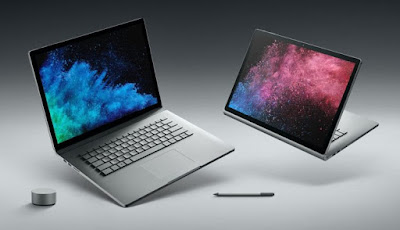 |
| 7 things to consider when buying a new laptop |
If you want to buy a new laptop, there are hundreds of options available that make it difficult to choose the right laptop for work, study, or even gaming, as it takes a lot of time. To find the right specs and the right price. For this reason, we offer you these points that you must consider when purchasing.
There are 7 things to consider when purchasing a new laptop:
1- Operating System:
MacOS and Windows dominate the OS market and offer clear advantages to Windows. So you must first decide which operating system is right for you before you decide to purchase a new device.
This usually includes several factors, such as: Are you a new user or an expert working with one of the previous two operating systems? How much do you want to spend on new devices?
2- screens:
Do you want a touch screen or is this not important to you? Is high resolution suitable for you or do you want a 4K screen? Of course, this affects prices. Note that if you select a MacOS computer, the touch screen option will not be available.
What screen size? The most common options are 13 inches and 15 inches, but your choice directly affects weight and design factors.
3- Design and weight:
It depends on how you use the computer and the type of work you do. If you've always held the device on a stationary table and rarely moved it, weight won't matter here. However, if you travel a lot and the device is part of your movements, weight is the factor that makes the difference when buying.
The weight factor is also closely related to the design of the computer. Do you like a traditional laptop or 2-in-1 computer that can be used as a laptop or tablet computer?
4- Central unit and graphics processor:
Which processor to choose? Would it be better to merge the GPU or use it alone?
Most people overestimate the importance of processors for everyday productivity, but in general Intel Core i5 or i7 processors provide enough productivity performance, while GPU, design, video editing, or gaming tasks require a separate GPU, z. B. The rest of the Intel processor, including the integrated GPU.
5- RAM:
You can find cheap 4GB laptops with RAM, but that depends on the purpose of the device. If you use it for regular tasks like blogging and watching movies, 4 or 8 GB is enough.
Regardless of whether you want to do big tasks like video editing or design, 16GB or more, this is a good choice. However, keep in mind that many laptops do not allow you to upgrade memory, so focus on these specifications from the start. Most importantly, if in doubt, choose a higher memory. Always
6- Storage:
Choosing an SSD or NVMe volume is always a good idea, as this has a positive impact on device performance and helps save battery power. When it comes to storage capacity, the minimum OS and basic app install is 128GB. This is best suited for users who store most of their data in the cloud and in n you do not need to store many multimedia files.
Upgrading to 256 or 500 GB is a good option to remove fear of storing data, while upgrading to capacities greater than 1 or 2 TB is expensive, but it is useful for those who often use digital media files.
7- battery life:
Computer manufacturers often overestimate the actual performance of laptop batteries, so many do not suspect the listed numbers, and even independent standards can provide measures based on activities inappropriate for the type of use. From your device.
Related Topics :
- 4 laptops supporting 5G networks will be launched this year
- Acer announces laptop creators with a versatile screen
- Apple may announce a MacBook Pro 16 inch with two Screens this weekl
- Review ASUS TUF FX504GE-ES52 Full HD Gaming Laptop
- Review Acer Predator Triton 900 4K UHD Gaming Laptop